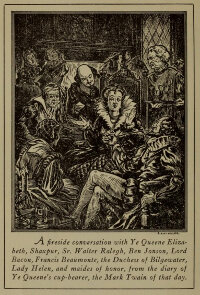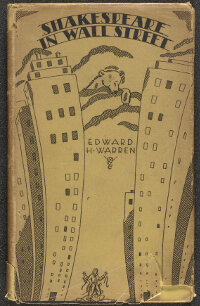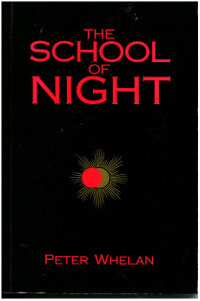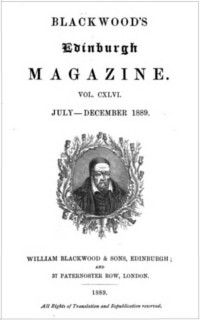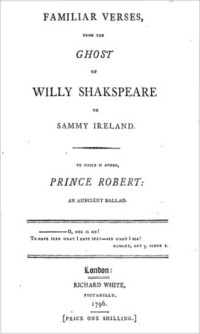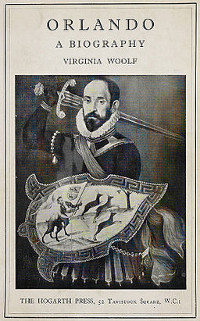Mark Twain
Cincinnati: Imprinted by Ye Puritan Press at Ye Sign of Ye Jolly Virgin, 1601 [1880]
120 copies issued; none sold.
Twain, who doubted Shakespeare’s authorship elsewhere, portrays “Mr. Shaxpur” as an unsavory fellow engaged in bawdy conversation with Queen Elizabeth, Ben Jonson, and Sir Walter Raleigh, among others. Erica Jong, who called the work “deliberately lewd,” appreciated its pornographic spirit: “It delights in stinking up the air of propriety.” The work was not included in Twain’s collected writings until 1990. —VH
